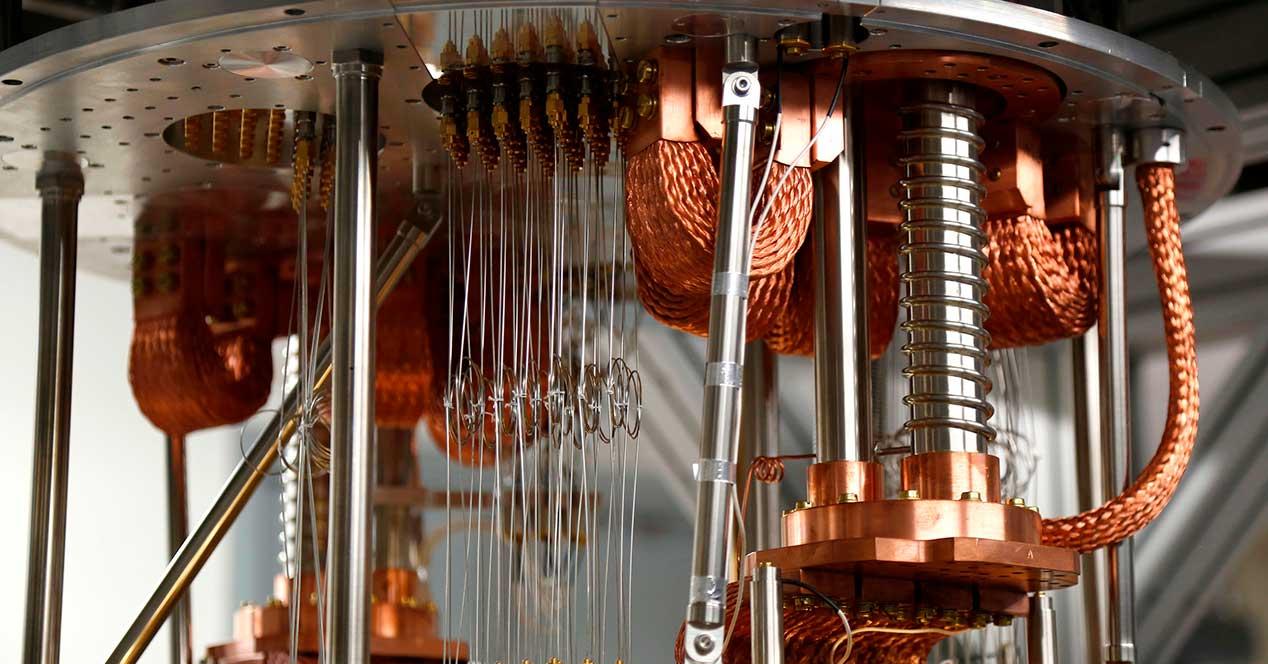Talking about quantum computers at the moment is almost science fiction, what’s more, it’s a new paradigm that changes everything from the moment it’s a total reinvention of what is computing from its foundations. Due to the replacement of the binary basis based on bits, by that based on qubits. Well, what a quantum computer and its memorythat’s what we’re going to talk about now and why these systems, once viable, will completely change the way we understand computers.
The ideal computer system is one that has as much memory as possible to store programs, transmits at the highest possible speed, and is as close to the processor as possible. Unfortunately you can’t and that’s why you have to create a memory hierarchy where you are as they move away from the CPU their capacity to store data increases but their bandwidth and access speed decrease. It seems like a problem that will never be solved, however, once the first quantum computer becomes a reality, this will all be a thing of the past.
Why is a quantum computer needed?
Due to the fact that over time we generate more information than we can process and we have to store it. It will precisely reach the point where it will be impossible for us to solve certain problems quickly enough due to its enormous size. For now, conventional bit-based computing is sufficient, however, the big problem is not only the need for a good amount of data, but also its accuracy.
The main reason: quantum memory
Well, basically it would be RAM memory which, instead of encoding bits in its memory cells, stores qubits. At the moment it is a laboratory concept and although experimental processors capable of handling a few qubits have been created, there is still a long way to go to see even something not comparable with the Intel 4004 , but with the RTL and TTL chips from the minicomputers of the 60s and 70s. Yeah, those rattles that just put a man on the moon and things like that, details versus moving Cyberpunk to 4K .
We must start from the principle that N qubits equals 2not snippets of information. So we’ve gotten to the point where we can have memory that, internally and in a very small space, can store not just several gigabytes, but several terabytes of information. Can you imagine the performance that a processor with this type of memory could achieve? We would end with the stroke of a pen all the current problems such as the energy cost of data transfer and latency. Each of the pieces of information would be within reach of the processor because we would not need a memory far from it, but rather it would be there.
To give you an idea of what we are talking about, the human genome occupies a size of 3TB of storage. Well, now imagine what would happen if at some point we could have not RAM memory, but one in the processor of said size. So with that, you can imagine what a quantum computer would mean for scientific research.
We are still far from realizing it.
However, this causes the problem that the logical part, which has to process the data at the moment, is very slow, does not give exact results and experiences information loss. Although they still have many years ahead of them to solve the problem. In particular, the most important interest is to face the scientific world and to be able to work with large volumes of data as quickly as possible. However, things are still very green.
What is being worked on is the development of systems to transfer qubits into bits so that conventional hardware can take advantage of the storage capacity of quantum memory. Can you imagine the number of hours of video that could be recorded? Will we see people recording their whole life and carrying it around on a USB stick? Who knows. In any case, with this explanation, you can get an idea of why many large companies in the sector are investing millions of dollars to be the first to develop a quantum computer.










